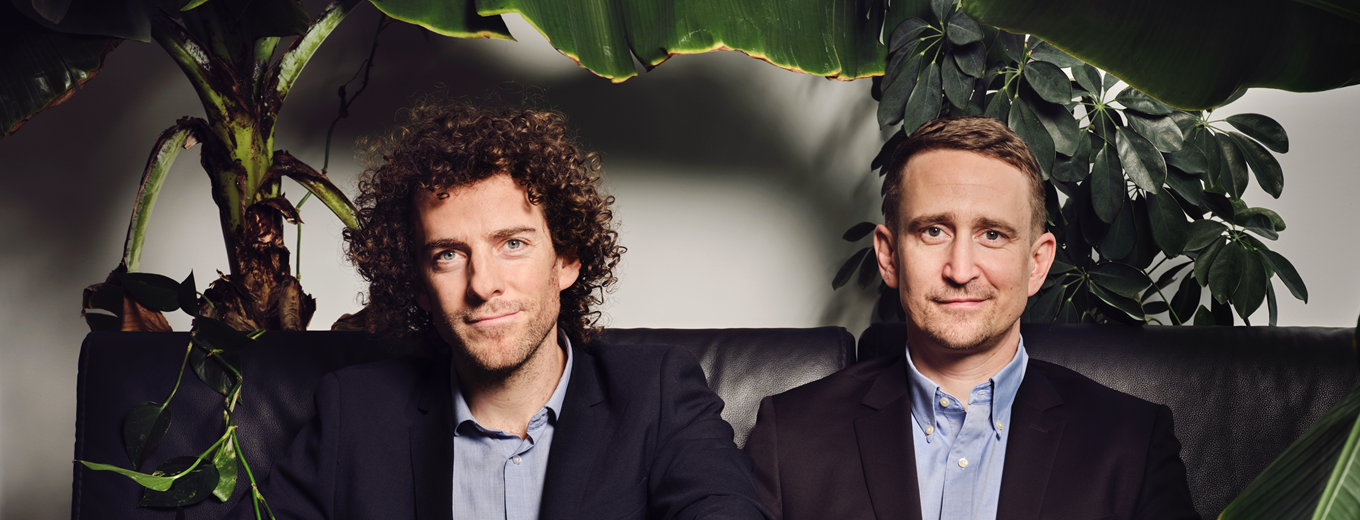EPFL spin-off Bloom Biorenewables transforms agricultural waste into sustainable chemicals, offering cost-effective alternatives to fossil-based products.
All the materials that surround us, from textiles to packaging to food ingredients and cosmetics, are ultimately composed of carbon. For decades, the main source of this carbon has been fossil fuels, which are inexpensive and easy to transform, making them the foundation of a linear industrial economy. However, this model is unsustainable and its current impact on the climate calls for a transition to a circular economy. Bloom Biorenewables, a Swiss deep-tech start-up founded in 2019 by Jeremy Luterbacher, Florent Héroguel and Remy Buser, offers a solution by transforming abundant biomass into sustainable chemical building blocks, shifting from petroleum-based inputs to renewable carbon sourced from agricultural and forestry residues.
The origins of Bloom Biorenewables are rooted in a passion for science and sustainability. Florent Héroguel, after completing his PhD in Chemistry at ETH Zurich, joined EPFL’s Laboratory of Sustainable and Catalytic Processing (LPDC), where he and fellow researchers developed a breakthrough method for biomass conversion under the guidance of Professor Jeremy Luterbacher. Among the two viable alternatives to petroleum, one approach is to capture atmospheric carbon dioxide and convert it into new materials, but this remains technologically challenging and costly. The second, more feasible approach focuses on utilising biomass sustainably harvested from agriculture and forestry, providing an abundant and renewable feedstock. Biomass is a complex material composed of cellulose, lignin and hemicellulose. In 2016, researchers at LPDC developed a breakthrough method that prevents lignin and hemicellulose from condensing during conversion, thereby preserving the quality of these key ingredients. This process proved to be both robust and scalable, forming the foundation of Bloom’s proprietary technology.
Remy Buser brought entrepreneurial expertise to the founding team. After completing his PhD at ETH Zurich and gaining experience in environmental lawmaking at the Swiss Parliament as well as within Switzerland’s startup ecosystem, he initiated the technology transfer from the laboratory to market application. Despite the technology’s strong potential, Bloom faced the typical challenges of an industrial startup, including market adoption and scaling. High-performance expectations shaped by the petroleum industry made initial uptake difficult. To address this, Bloom focused first on niche, early-stage markets such as fragrances and flavours, where sustainability offers a distinct competitive advantage. This approach allowed the company to refine its processes before expanding into larger bulk markets, including adhesives and coatings.
European collaboration has been instrumental in Bloom’s development at every stage. Participation in the EIT Climate-KIC as a freshly-founded start-up was very beneficial for them as it provided early-stage funding, mentoring and valuable connections to other start-ups, enabling the team to validate its approach and prepare for market entry. The company’s first large-scale project was as a partner in the Horizon 2020 IDEALFUEL consortium, which facilitated the transition from laboratory scale to pilot production and provided access to a European network of industrial partners and potential customers. In 2021, Bloom secured funding through the Swiss equivalent of the EIC Accelerator, which provided financial resources and credibility to engage with major chemical firms. This support was especially vital given the political context of Switzerland’s temporary non-association to Horizon Europe, as national programmes filled the gap and ensured continuity of innovation activities. As Remy explains, “Start-ups are always exposed to political decisions so we were very proud and happy that Switzerland was so reactive”. Overall, Bloom successfully secured funding through a blend of public and private sources, combining support from the Swiss innovation landscape including Innosuisse and venture capital, together with European funding. Now that Switzerland has rejoined Horizon Europe, Bloom is planning to coordinate flagship projects in the circular bioeconomy and intends to apply for funding under the Innovation Fund.
These achievements in technology scale-up and funding have positioned Bloom as a leading innovator in the Swiss start-up ecosystem. The company has been recognised as one of the top 100 Swiss start-ups over the past four years, reflecting its strong performance and innovation. Remy and Florent have also been nominated for various awards, including the EY Entrepreneur Of The Year Switzerland award 2025.
As an EPFL spin-off, Bloom maintains strong ties to the university while increasingly developing its own intellectual property and applied research capabilities. The company is replicating the success of EPFL and doing it in their own labs with their own scientists, who are close to the customers to understand the market needs. As Florent Héroguel emphasised, their aim is to make “innovation connected to the market needs so we can change the industry in the short term”. Looking ahead, the co-founders share a clear vision of Bloom’s future: to retain its headquarters in Switzerland while expanding its presence across Europe. The company is planning to construct a first-of-a-kind (FOAK) production facility, with construction expected to begin in 2027.
Overall, Bloom Biorenewables is not only a pioneer in sustainable chemistry but also a bridge connecting Swiss innovation with European industrial ecosystems.

